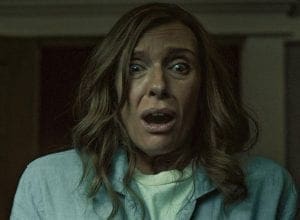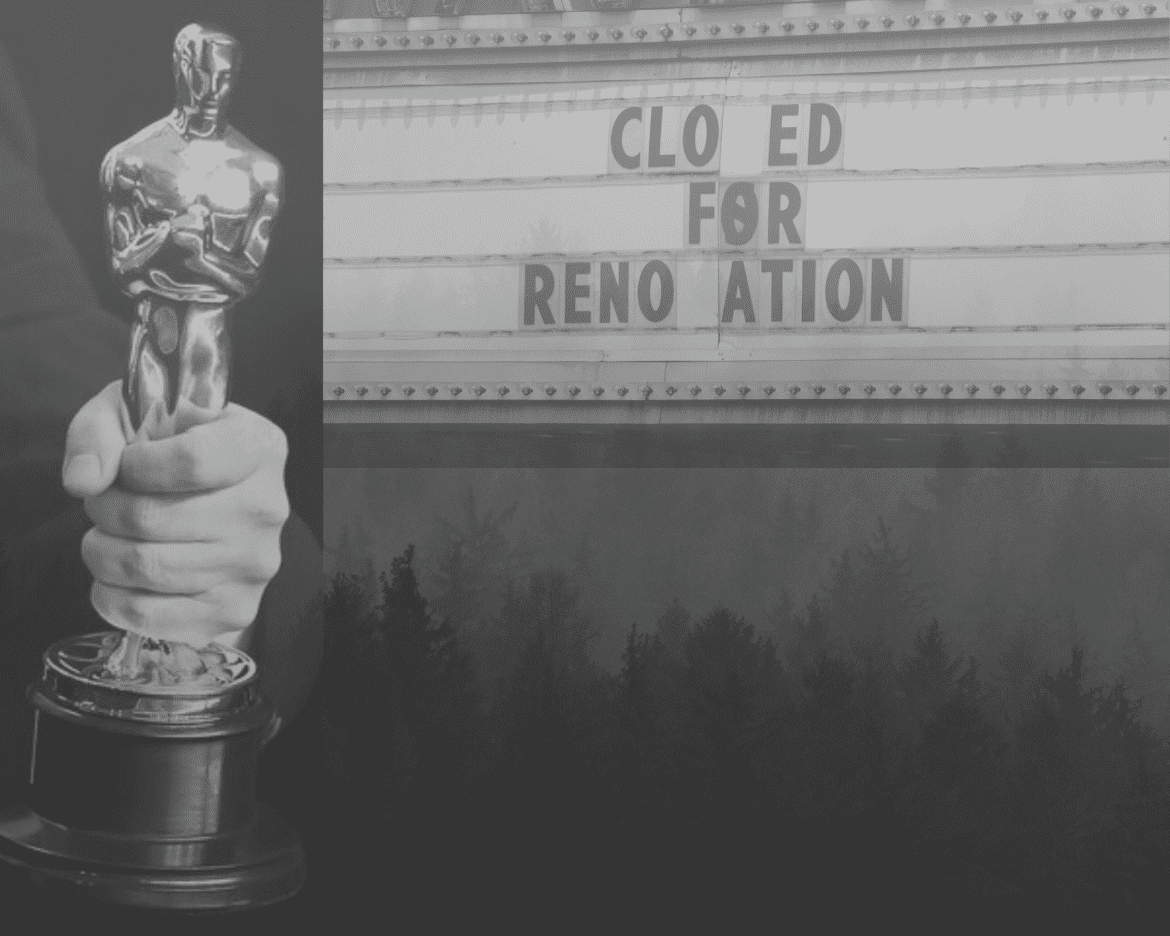I wouldn’t have ever pictured myself as a movie fanatic until last year. I’ve spent most of my free time since then making up the ground that I lost ignoring the deeper depths of cinema for most of my life. Part of my appreciation has been especially dedicated to the horror genre and its new wave of art house films. I couldn’t help but wonder a question that’s been tossed around in the minds of fans and critics whom have been paying attention a lot longer than I have: Why don’t horror movies win Oscars?
The first horror movie I ever watched was “Saw” when I was just ten years old. I was fascinated with the main villain Jigsaw, but I was far too young to be watching a movie like that. What’s worse, it gave me a poor impression of what the horror genre was truly capable of. Horror audiences in the early 2000s largely viewed the genre as a pop category akin to action and comedies. They seemed less interested in prestige and auteurism, and more in the theatrical experience of getting “spooked.” It wasn’t until my “movie renaissance”—as I like to call it—that I discovered a collection of recent horror gems that are transforming the genre as a whole.
My Experience with the Horror Genre
It all started with the movie “Get Out,” and I’m probably not alone in this feeling. I went to theatres for this release because of the number of familiar faces in the cast: Daniel Kaluuya from “Black Mirror,” Bradley Whitford from “West Wing,” Jordan Peele from everything I’ve ever laughed at. By the end credits, I was swept away from everything the movie did. Little things like the symbol of the deer head and the slight little cadences from characters stuck in the “sunken place,” or huge draws like Kaluuya’s electrifying performance during the movie’s climax. These things help “Get Out” transcend its label as a horror movie.
My favorite kinds of movies are the ones that reward you for paying close attention, and the ones that you can watch again and discover new things that were always in plain sight. “Get Out” did both of these things while simultaneously scaring the sh*t out its audiences. The entire film is coated in a general sense of unease, with a ‘stranger in a strange land’ tone.
Naturally, I deep-dove into the IMDb rabbit-hole after my viewing. I found that “Get Out” won an Oscar for Best Original Screenplay. On Jordan Peele’s first attempt at a full-length dramatic film, he took home a prize that writers everywhere dream of. Seeing this compelled me to check out my other favorite horror movies and the hardware they have been able to take home.
The Oscars have a controversial history to say the least. The entire event is quite arbitrary in terms of the critical acclaim movies receive, yet it has become such a fixture in the yearly round-up of events that it’s hard not to pay attention to.
The Oscars’ Fear of Horror Cinema
“A Quiet Place,” “Hereditary,” “Us,” “Midsommar,” “The Cabin in the Woods.” All landmark films of the 2010s that have helped horror escape its corny, early 2000s upbringing. All movies that capitalize on either transcendent visuals or intuitive sensory techniques that thrill the audience. Nearly all unanimously reviewed with positivity. All without a single Oscar to their name.
Winning an Oscar is no easy feat. The politics, the restrictions and general vagueness that go into the decision-making of who wins and who doesn’t, should not be forgotten during this discussion. But with some of the best acting performances, cinematography, and creative direction, it is mind-boggling that none of the aforementioned films have won an Academy award.
“A Quiet Place” came the closest out of all the films I mentioned. It was nominated for Best Sound Editing, only to lose out to “Bohemian Rhapsody.” 2019 was a year when the Academy made a flurry of controversial picks (looking at you, “Green Book”), but with a movie centered around pinpoint sound control, it’s hard to justify the snuff.
“A Quiet Place” is set in an eerie, desolate, post-apocalyptic world where any noise whatsoever could induce an attack from hyper-sensitive monsters that lurk about. The deafening silence of the film as a whole with its slow-paced shots make for a completely terrifying viewing experience. But the Academy seems to have a knack for blindly assigning Oscars based on popularity, so even a movie as popular as “A Quiet Place” still stands no chance against the behemoth blockbuster sales garnered by the Queen biopic. “Oh, a movie about a famous rock band? Just give them the Oscar for sound stuff!” That wasn’t a real quote. Or maybe it was. We’ll never know. The inner machinations of the academy are an enigma.
Unforgivable Oscars Snubs

Toni Collette in “Hereditary,” per the Everett Collection.
Sometimes, the omissions are much more egregious. “Hereditary” features one of the most sensational acting performances I’ve seen in a horror movie. It’s my favorite performance of Toni Collette’s, and she’s been in a ton of my favorite movies (“The Sixth Sense” and “Knives Out” to name a couple). Critics and fans alike were in an uproar when “Hereditary” was left off the 2018 Oscar ballot entirely, and rightfully so. So why does this kind of thing happen to some horror movies and not others, like “Get Out”?
Indie distributors have a bigger audience than ever. A24 and Blumhouse are huge companies growing by the year that can give lower-rank voices a leg up, and I believe that’s why auteurs and filmmakers can get these more prestigious horror films into the mainstream. They’re small companies, yes. However, they can afford an Oscar campaign, which can make or break the Academy’s overall decision for a nominee. “Hereditary” didn’t really get much of a campaign push despite its popularity post-release, while “Get Out” got a big shove from positive word-of-mouth. Sometimes that makes all the difference.
Horror movies haven’t been ignored altogether for the entire history of the Oscars. It’s also important to acknowledge films like “Black Swan” and “Misery” among others that have been acknowledged by the Academy. These movies, however, do not erase the years of neglect. They are dark, psychological dramas first and horror films second. They have horror stylistics (gore, supernatural elements) but ultimately put prestige above all else. There have been pop-horror anomalies that have taken home prizes, like William Friedkin’s “The Exorcist” or Jonathan Demme’s “Silence of the Lambs.” However, for the foreseeable future, that is what they will remain: anomalies.
The Art of the “Safe Pick”
So for our titular question (why don’t horror movies win Oscars?), there doesn’t seem to be a clear-cut answer. This entire discussion is boiled down into one integral question. Is the safety of a film’s art worth more than the creativity it offers? To a regular movie-goer like myself, the answer is obviously no. But to an award show with millions of eyes laid upon its choices each year, the answer becomes less simple. But there’s reason for hope.
I cannot describe the jubilation I felt watching “Parasite” win Best Picture last year, in addition to three other Oscars. While I won’t get into my gripes about the categories it was omitted from (not a single acting nomination? Really?), it’s important to realize that the Academy may be changing their ways. Don’t get me wrong, they’ve made picks to satisfy movie buffs before, only to follow up with more incompetence in the years that follow. But perhaps things will be different this time. A foreign language film winning such high honors is monumental. The only way to top it is to follow suit with movies of other neglected genres that are keeping pace with or surpassing the quality of the nominees.
The Oscars’ Academy has a complicated relationship with horror. It is hard to say if we’ll see a resurgence fueled by the success of “Get Out,” since that is a psychological thriller with horror elements. But who knows? The Academy looks a lot different now than it did five years ago. Here’s hoping new horror films following the “horror renaissance” of the 2010s can take home the awards they deserve. Especially, through the pathways paved for them in years past.
About the Author/s
Jack Oliver is an aspiring writer, and is so thrilled to be part of The Digest's team. He also works as an editor at GenZ Publishing. Previous accolades include a published play by Lazy Bee Scripts ("Coming of Age").
